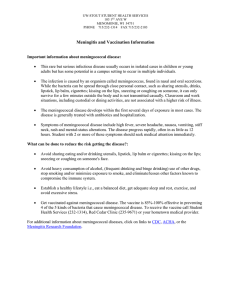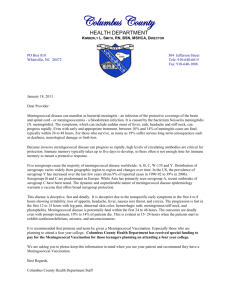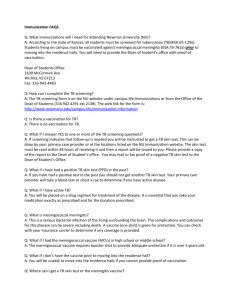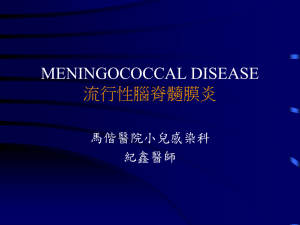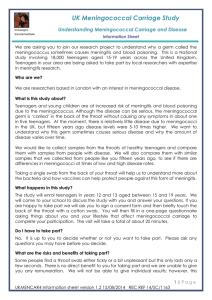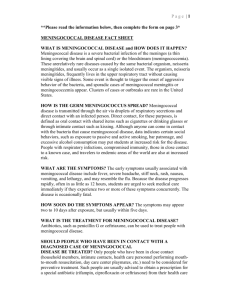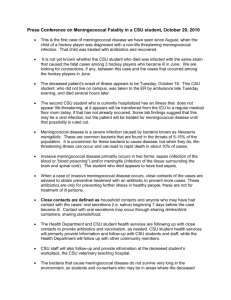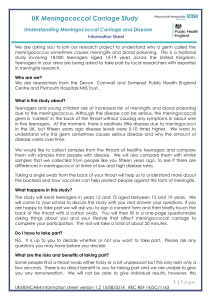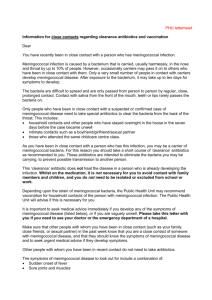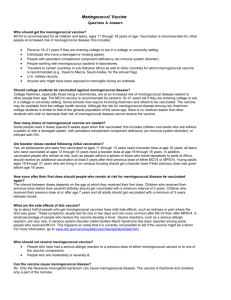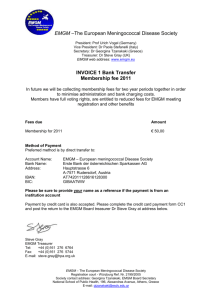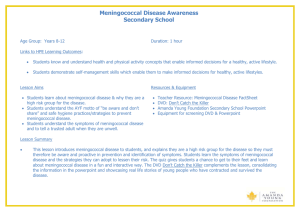January Meningitis
advertisement
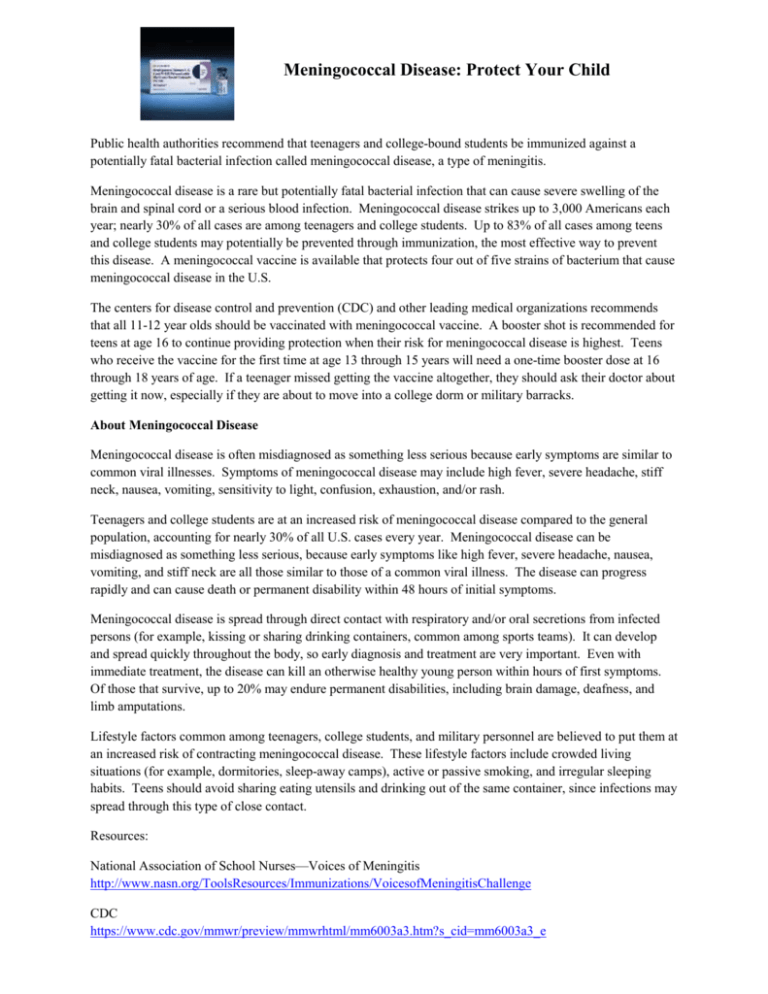
Meningococcal Disease: Protect Your Child Public health authorities recommend that teenagers and college-bound students be immunized against a potentially fatal bacterial infection called meningococcal disease, a type of meningitis. Meningococcal disease is a rare but potentially fatal bacterial infection that can cause severe swelling of the brain and spinal cord or a serious blood infection. Meningococcal disease strikes up to 3,000 Americans each year; nearly 30% of all cases are among teenagers and college students. Up to 83% of all cases among teens and college students may potentially be prevented through immunization, the most effective way to prevent this disease. A meningococcal vaccine is available that protects four out of five strains of bacterium that cause meningococcal disease in the U.S. The centers for disease control and prevention (CDC) and other leading medical organizations recommends that all 11-12 year olds should be vaccinated with meningococcal vaccine. A booster shot is recommended for teens at age 16 to continue providing protection when their risk for meningococcal disease is highest. Teens who receive the vaccine for the first time at age 13 through 15 years will need a one-time booster dose at 16 through 18 years of age. If a teenager missed getting the vaccine altogether, they should ask their doctor about getting it now, especially if they are about to move into a college dorm or military barracks. About Meningococcal Disease Meningococcal disease is often misdiagnosed as something less serious because early symptoms are similar to common viral illnesses. Symptoms of meningococcal disease may include high fever, severe headache, stiff neck, nausea, vomiting, sensitivity to light, confusion, exhaustion, and/or rash. Teenagers and college students are at an increased risk of meningococcal disease compared to the general population, accounting for nearly 30% of all U.S. cases every year. Meningococcal disease can be misdiagnosed as something less serious, because early symptoms like high fever, severe headache, nausea, vomiting, and stiff neck are all those similar to those of a common viral illness. The disease can progress rapidly and can cause death or permanent disability within 48 hours of initial symptoms. Meningococcal disease is spread through direct contact with respiratory and/or oral secretions from infected persons (for example, kissing or sharing drinking containers, common among sports teams). It can develop and spread quickly throughout the body, so early diagnosis and treatment are very important. Even with immediate treatment, the disease can kill an otherwise healthy young person within hours of first symptoms. Of those that survive, up to 20% may endure permanent disabilities, including brain damage, deafness, and limb amputations. Lifestyle factors common among teenagers, college students, and military personnel are believed to put them at an increased risk of contracting meningococcal disease. These lifestyle factors include crowded living situations (for example, dormitories, sleep-away camps), active or passive smoking, and irregular sleeping habits. Teens should avoid sharing eating utensils and drinking out of the same container, since infections may spread through this type of close contact. Resources: National Association of School Nurses—Voices of Meningitis http://www.nasn.org/ToolsResources/Immunizations/VoicesofMeningitisChallenge CDC https://www.cdc.gov/mmwr/preview/mmwrhtml/mm6003a3.htm?s_cid=mm6003a3_e
